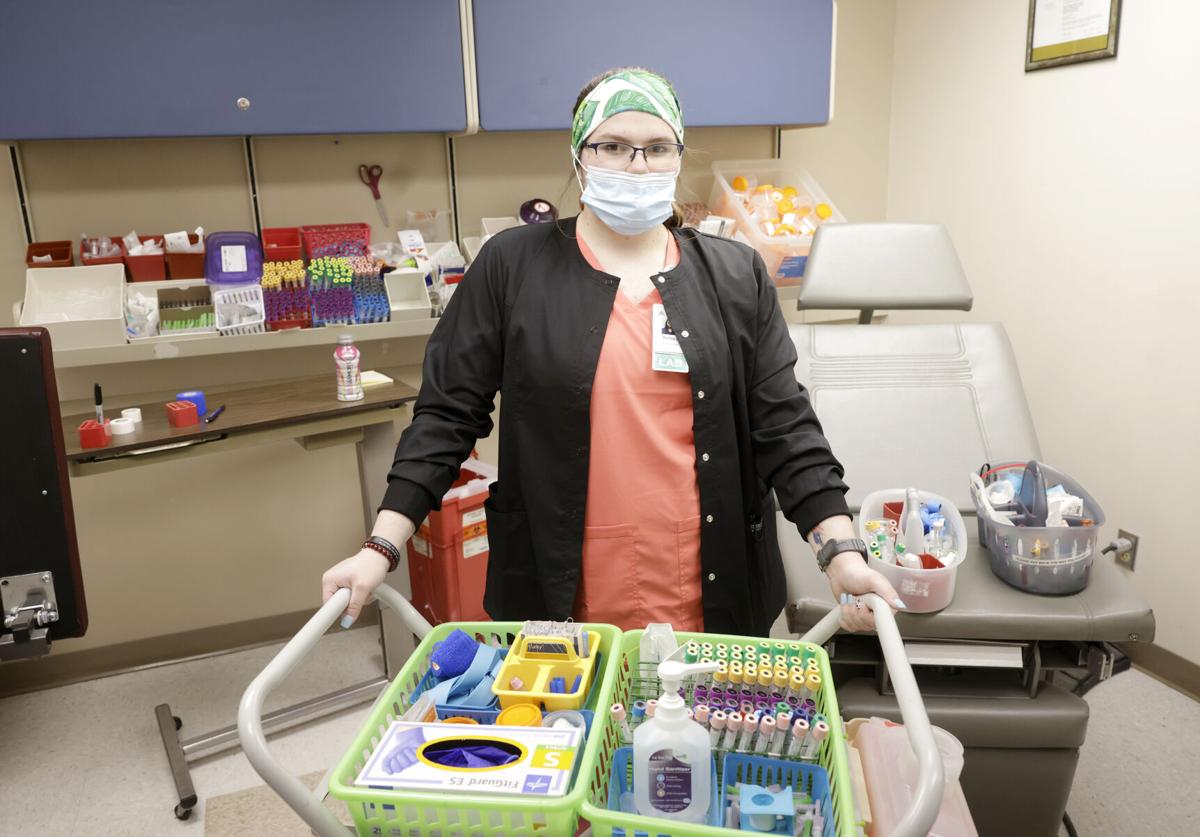Andrea Eger
Pandemic relief: CARES Act dollars paid for accelerated job training to return hundreds in NE Oklahoma to workforce in higher-paying jobs
A local CareerTech center thinks a scholarship program it created with federal coronavirus relief funds has been so successful, it could be a statewide model for getting people into better-paying jobs or back to work in Oklahoma’s most in-demand industries.
Tri County Tech used a $1 million grant funded by the Coronavirus Aid, Relief and Economic Security, or CARES, Act for scholarships to get hundreds of unemployed and underemployed workers into accelerated job training programs.
The 2,300 applications that flooded in for Skills to Rebuild Scholarships and the success rate of the 540 recipients stunned Superintendent and CEO Lindel Fields.
“Tri County hasn’t taken any federal funding since 2015 just because of the strings attached. Because of the downturn in oil and gas and then the pandemic, so many people were struggling and we thought ‘What can we do to help?’” said Fields, who has been a professional educator for three decades. “Tri County has held sacred this thought that students need to have skin in the game. What we learned was just a few hundred dollars was such a challenge for students to get into school.”
Kelsey Rader was one such wannabe student.
The 20-year-old Ochelata resident was putting in as many shifts as possible at a rural smoke shop but was barely making ends meet on her $7-an-hour pay.
“Bringing in less than $1,000 a month, it’s hard. I never had the extra money to set back. But I had been wanting to get into the medical field for a while and I saw this as a good opportunity in my career and in my life,” she said. “I know a lot of people who are in dead-end jobs, but they don’t have the money to go back to school. That’s a big hurdle right now, especially with the way the economy is.”
With just a $270 scholarship and co-workers who were willing to trade shifts at the smoke shop, Rader was able to go to school two nights per week for a month and complete a basic phlebotomy course.
In November, she got a frontline health care job that pays $13 per hour at Ascension St. John Jane Phillips Hospital in Bartlesville.
“We do everything from blood draws to dealing with outpatient paperwork. Sometimes people call us if they can’t get it (blood drawn), from one-day surgery patients to the emergency room — all over the hospital,” Rader said. “I’m making almost twice what I was making and now, I enjoy work every day.”
After Gov. Kevin Stitt mentioned the success of Tri County’s scholarship program in his recent State of the State address, Fields sent his office a formal proposal to bring Skills to Rebuild Scholarships to 15 CareerTech centers across the state.
Based on the one-year experience at Tri County, which has seen an 85% completion rate, Fields figures 11,824 students could receive scholarships at a one-year cost to the state of $10.3 million, resulting in new average wages of $17.32 per hour and an annual payroll of $307 million to $350 million across that cohort of students.
“This problem isn’t going away. Four million new people applied for unemployment last week,” he said. “As a state, we need to be thinking about education at all levels if we are going to bring companies into our state and keep them. Our state does really good at graduating kids from high school but only 45% go onto college or CareerTech.”
Skills to Rebuild was designed to get students into the workforce in as little as two months by offering flexible class times including evenings and weekends and accelerated certifications in the in-demand fields of accounting, health care, nursing, child development, computer networking, cybersecurity, and manufacturing.
Courses of study range from $270, $389, and $399 for phlebotomy, certified medication aid, and child development associate, respectively, to $799 for certified nursing assistant to $4,500 for licensed practical nurse.
“We had hospitality workers who were laid off overnight because of the pandemic and we had people making $60,000 to $70,000 a year in the oil and gas industry out of work who are now back earning a paycheck. We never dreamed of how many lives would be affected. People want stability and there are a lot of 27- to 33- or 35-year-olds who look up and life isn’t what they thought it would be. They can’t quit dead-end jobs to retrain,” Fields said. “$1 an hour pay differential is $2,000 a year. That can be life-changing.”
Cordell Frye, 23, found himself among more than 50 people out of 90 employees laid off at Bartlesville’s Schlumberger manufacturing plant. He had worked for two years there building electrical pumps and wanted to break into an information technology job, but had no training and his only other resume experience was at a tire and lube shop.
A $2,000 Skills to Rebuild scholarship was not only his ticket to computer technology training, but a fellow student he met in his three-month training course at Tri County turned out to be his ticket to a new job six months after a job loss.
“A lot of our class was online — we were only in the building one day a week because of the virus. The days we were in class, everyone was talking, participating. Everyone that was there was really happy to be there. Everyone took it seriously,” Frye said. “There was one student — he was already working at DSR and just needed that certification. He is the reason I work at DSR now. I told him I was looking for a tech job and he and someone at Tri County put a good word in for me.”
Frye sees his new job, at a company providing networking tech support for other businesses, as a foot in the door in his industry of choice. He eventually wants to earn a bachelor’s degree in IT.
“When I got laid off, I talked with my wife about me going back to school. We agreed it was time for me to further my education. It was an amazing feeling saving that good chunk of money because we were worried about that,” Frye said. “I know other people in that class I was in, they were saying if it wasn’t for that, they wouldn’t have even taken it.”





